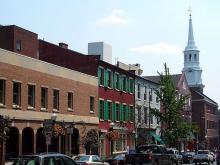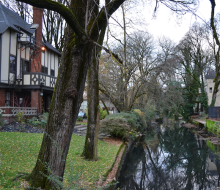Public-Private Partnership Pursued in Pennsylvania
Pennsylvania’s state barriers won’t stop this community from improving Internet service for its municipal facilities, residents, and businesses. The City of Lancaster is collaborating with private provider MAW Communications to ensure the community has next-generation technology. Their public-private partnership, LanCity Connect, will offer affordable 1 gigabit (1,000 Megabits per second) service over a new Fiber-to-the-Home (FTTH) network.
Shared Risk, Public Financing
The Lancaster Online has closely followed the development of the partnership from a 2015 Wi-Fi project between the partners to the current citywide fiber plan. Here's a quick summary of the basic framework of the partnership:
MAW Communications originally built a $1.7 million fiber backbone starting in 2015 with financing from the city's water fund bond. The city had refinanced its water utility debt, saving some $7.8 million and they worked out an agreement with MAW where the private partner would deploy and own a backbone fiber network. Over the 20 year term of the deal, the city has the right to half the network for city services, including automatic meter reading (AMR) and a traffic control system, with the city being able to renew the deal for four additional terms. Officials have said this arrangement will not impact water rates.
MAW Communications will extend the network to premises, aided by a $1.5 million loan with a 7 percent interest rate from the city's general fund reserves. The provider will repay the loan over a 13 year period. As long as MAW Communications has an outstanding loan to the city, the provider cannot sell the network without the city's written approval. Though the loan will help MAW to begin building the network, the costs of connecting homes and businesses would still be prohibitive at $1,000 each if not for another element of the plan.



